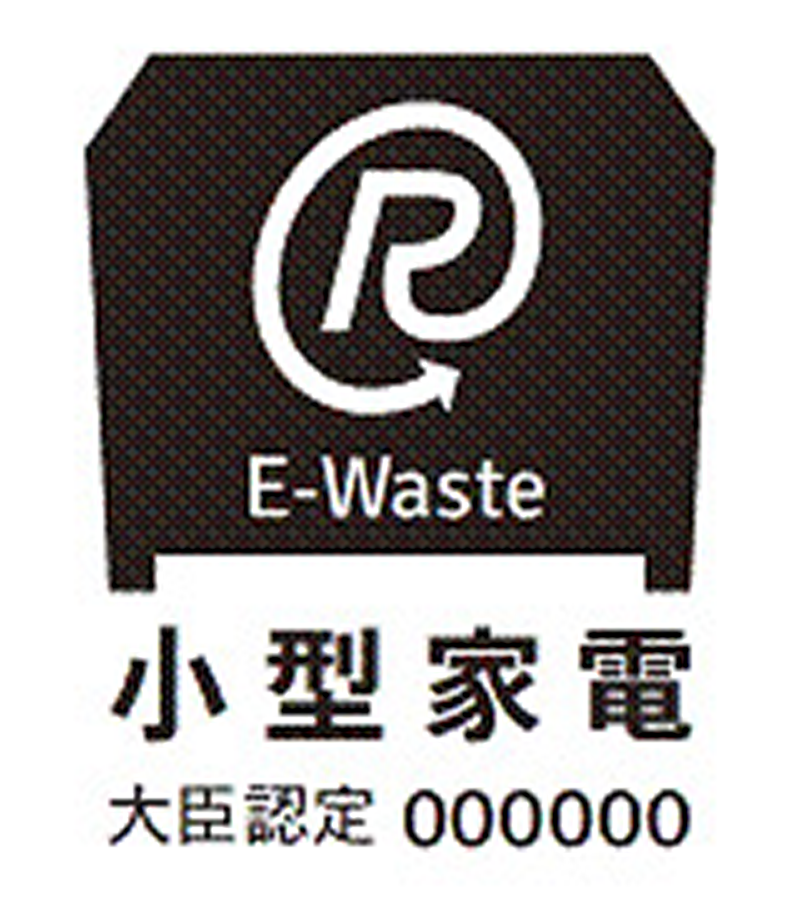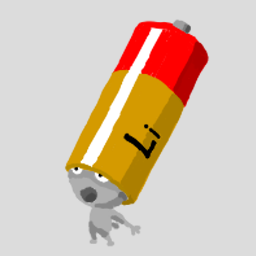現在の取り組み
現在資源問題を解決するためにさまざまな取り組みが行われています。 世界は明るい未来に向けて歩み出そうとしているのです。
いろいろな国の取り組み
日本を含め、世界各国の政府はどのような取り組みをしているのでしょうか? 調べてみると都市鉱山活用の違いやリサイクル方法の違いなどがあらわになり、ユニークな取り組みがたくさん行われていることがわかりました。
この章で紹介する6ヶ国です!
日本
日本の小型家電リサイクルの軸は2013年4月1日から施行されている「使用済小型家電電子機器等の再資源化の促進に関する法律」、通称「小型家電リサイクル法 小型家電リサイクル法 日本で小型家電を対象として施工されているリサイクルに関する法律。家電リサイクル法などとは違い、法律に強制力はない。2021年8月10日に公布され、2013年4月1日から施工されている。 」です。 これは各自治体ごとに回収・リサイクルの対象品目、具体的方法、リサイクル料金の負担額を独自に定め、回収するというものです。 その自治体の回収の具体的方法の一つに回収ボックス 回収ボックス 使用済み小型家電を集めるため、スーパーや学校などに設置されているボックス。誰でも無料で利用することができる。 があります。 「都市鉱山っていっても使い終わった電子機器はどこに出せばいいの? いつものゴミ出し場に出してもリサイクルされないでしょう?」 そう思っている方はいませんか。 いわゆる「廃電子機器」用のゴミ出し場が回収ボックスなのです。 そこに廃電子機器を入れると無事にリサイクルされることになります。
〜回収ボックスからリサイクルまでの流れ〜
回収ボックスは全国の公共施設やスーパー、家電量販店、学校などに設置されています。 回収ボックスにあまりなじみがないという方も多いかもしれませんが、一度「近くの回収ボックス」と検索してみてください。 きっとその数の多さに驚きますよ。 (※回収ボックスを利用される方は、自治体ごとに対象品目が異なることがありますのでご注意ください) 上のイラスト~回収ボックスからリサイクルまでの流れ~のように、市町村で回収された小型家電はリサイクル事業者で分解・粉砕・選別が行われた後に、金属精錬事業者で金属の取り出しが行われ、これが新たな資源としてメーカーに運ばれます。 このリサイクル事業者の中には国に認められている認定事業者 認定事業者 国が認定した、確実なリサイクルを行う業者。 として下のようなマークを付けているものもあります。 現在、認定事業者は、58社あり(2021年8/6時点)、環境省のページですべて公開されています。

Data Source : 環境省より引用
ただ、毎年着実に回収量は増えていますが、いまだに目標量の14万トンは達成できていません。 2017年のデータで少し古いですが、廃電子機器回収率は15%でとても高いとは言えない数字です。 日本は比較的海外に比べ正しい方法でリサイクルを行うシステムが確立しているので、その強みを生かしてもっと都市鉱山開発を推し進められるはずです。
スイス
金属リサイクルでリードしているのはスイスです。スイスは現在の日本と同じく天然資源に乏しい国です。 しかし、スイスは国内の電子廃棄物を再利用することによって、これを補っています。 実に2018年時点で電子廃棄物のリサイクル率は95%に達しています。 どのようにしてこれほどまでに大きな成功をおさめることができているのでしょうか。 まず、スイスでは1998年初頭に「電気・電子機器の返却・引き取り・処分に関する政令 電気・電子機器の返却・引き取り・処分に関する政令 スイスにおいて実施されているリサイクルに関する法律。家庭や職場での家電製品等の返却義務や製造業者の受け入れ義務などが定められている。 (legislation on the Return, Take-Back and Disposal of Electrical and Electronic Equipment, ORDEE)」が制定されました。 これにより、スイス国内の小売業者、メーカー、輸入業者は、通常、取り扱っている電化製品を無料で引き取ることが義務付けられています。 一方、消費者にも使用済みの家電製品を返却する義務があり、他のゴミと一緒に出すことはできません。 スイスの会社が無料で廃電子機器を回収できるのは、消費者が購入する際にその製品の種類に応じてすでに前払いの廃棄料金が含まれているからです。 消費者側からすれば「せっかく買うときに廃棄代払ってるんだから無料で回収してもらうか」という気になるわけです。 他にも多くの要因がありますが、このようにしてスイスは強力な電子廃棄物管理システムを確立しているのです。
中国
中国は電子廃棄物排出量世界一位の消費大国です。 2019年には中国のみで1000万トン以上消費しており、今後も増加していくと予測されています。 そんな中国の都市鉱山利用を見てみましょう。 中国で、廃電子機器が初めに持ち込まれる場所はヤード ヤード 中国においてリサイクルするものがまず運ばれてくる場所のこと。このうちの多くが再利用(リユース)のために持ち出され、実際にリサイクルされる量はもとより減る。 と呼ばれます。 しかし、ここに持ち込まれたものがすべてリサイクルされるわけではありません。 そのうちの多くはリサイクルではなくリユース リユース 元ある部品などを再利用すること。リサイクルと違って出てきた廃棄物をできるだけそのまま利用する。 されるのです。 中国では製品のどの部分においてもその部分を必要とする人がたいていいます。 彼らはリサイクル処理をする前にヤードから廃電子機器を持ち出していくので、手間のかかるリサイクルをするのは一部で済み、効率が良いわけです。 これは、「利用する人が積極的に資源を見つけよう」という考えによるものです。 「できるだけ資源を無駄にしたくない。リサイクルすれば誰かが使うでしょ」という考えで誰が利用するかがあやふやなままリサイクルをしている日本とは違った考え方です。 日本でもこのような考え方から学ぶことは多いかもしれません。
フランス
不法投棄を減らすために廃棄物の量自体を減らすというのも1つの方法です。 新型コロナウイルス感染が拡大している現在、ヨーロッパ、特にフランスである動きが注目されるようになりました。 それは「修理業者がオンラインで修理をサポートする」というものです。 普段使っている製品が故障したときみなさんはどうしますか? 修理に出すにしても新しいものを買うにしても、お金がかかりそうだし届くまでの期間は使えそうにないし…といろいろためらってしまう方が多いのではないでしょうか。 そこでこの「修理業者がオンラインで修理をサポートする」というサービスを受けると、輸送費等がなくなるためになんと費用が1/3ほどにまで抑えられるそうです。 さらに修理済の、または新しい製品がまだ届いていないから使えない…という事態も避けられそうです。 そしてなんといってもこれによって廃棄物の量を減らすことができるのです。 しかし、これを行うためには消費者が自分で修理できるということが保証されてなければなりません。 製品の構造がとても複雑で、修理業者しか持っていないような特殊な機具がないと修理できないような場合、いくらオンラインで修理業者がアドバイスをしても修理できませんよね。 そのため、企業は消費者が自分で修理できるような製品を作らなければならないことになっています。 実際フランスでは、「修理のしやすさ指数 修理のしやすさ指数 その製品がどれほど修理がしやすいかを10段階で表す指標。フランスでは表示が義務付けられている。 」の表示が企業に義務づけられ、修理マニュアルを作成する企業も増えました。 気に入ったものを長く大切に使える、それが当たり前になる社会をフランスをはじめ世界各国が目指して動き出しています。
オーストラリア
国土が広大なオーストラリアは天然資源が豊富で、自給率 自給率 国や地域など一定の範囲内で消費される材料などの物品や、製品の材料や素材となる物品をその範囲内で自ら生産や産出し供給して、それらの全需要量を満たしているかを示す割合。 も昔から高い数値を維持してきています。 そのためか廃棄物に対する意識が低いためリサイクル率もそれほど高くなく、非常に多くの廃電子機器が埋立地に捨てられたり海外に輸出されたりしています。 そんなオーストラリアではすべての政府、企業、業界間の継続的な廃棄物削減への協力を仰ぐべく、国家廃棄物政策が2009年に発表されました。 しかしそこで定められた目標は、人口の増加に伴って廃棄物の量も急激に増える昨今ではあまり効果的ではなくなってしまいました。 さらに中国をはじめとするアジア諸国がごみ輸入規制を強化させた影響で、国内で処理しなければならない資源ごみの量も増えてしまいました。 オーストラリアは早急な政策の改革を求められたわけです。 そこでオーストラリアはリサイクルごみの海外輸出禁止を2019年8月に決定し、その実行のために、リサイクル目標を掲げない、つまりは無限の回収を目指すスイスのシステムを参考にしたり、日本などの国からゴミの分別やリサイクル、処理に関する先進的な技術を取り入れたりしました。 このように天然資源が豊富な国でも資源問題が意識されるようになったのです。
アメリカ
アメリカでは「シングルストリーム シングルストリーム 資源ごみを回収してから選別作業を行うリサイクル方式。消費者はゴミを分別して出す必要はなく、コストも低いというメリットがある。アメリカ合衆国などで広く浸透している。 」というリサイクル方式が浸透しています。この「シングルストリーム」とは資源ゴミをまとめて回収し、後から自治体の選別施設で磁石や光学センサーなどを利用して回収した資源ゴミを選別するという方法です。 この方法では国民はゴミを分別する必要はありません。 ゴミを分別してから回収するのが一般的な日本とは大きく異なっていますね。 この「シングルストリーム」には日本の回収方法と比べてメリットとデメリットがあります。 メリットは、より多くの国民がゴミを出すのに協力するようになったということです。 家庭ゴミを分別する負担がなくなるのでこのような結果になったと考えられます。 また資源ゴミの収集にかかるコストが減少したということもメリットに挙げられます。 資源ゴミの収集に必要なトラックが減ったために人件費も減り、燃料費も減ったのです。 一方で、デメリットとしては埋立地に捨てられるゴミの量が増えたということがあります。 「シングルストリーム」では、集められた資源ゴミの中には汚染されすぎていてリサイクルできないというものが多いため、リサイクルの効率が悪いと言われています。 その上、近年中国が廃棄物の輸入規制を行ったためアメリカの埋立地行きのゴミがさらに増えることになりました。 そのためアメリカは現在資源ゴミの最先端の選別機械の開発を進めています。
一方、「資源の現状」で述べたように廃電子機器リサイクルがうまくいっていない国も多くあるのが現状です。 そのため、リサイクルシステムが軌道に乗っている都市鉱山開発先進国が、そのような都市鉱山開発後進国を支援することも世界規模での都市鉱山開発につながります。 実際スイスは、電子廃棄物の埋め立て地となっているガーナなどの国と協力してリサイクルシステムを構築しています。
企業の取り組み
都市鉱山の利用は国だけでなく、大きな力をあげて取り組む企業も多くあります。日本国内でいうと、世界の国々の取り組みで紹介した「認定事業者 認定事業者 国が認定した、確実なリサイクルを行う業者。 」は私たちの電子機器を正しい方法で資源へと変えており、そのような企業の代表です。 これら認定事業者は日本国内の小型家電の回収量のうち約30%を回収しています。(残りは主に市町村からの回収によって賄われています。) また、金属リサイクルをすると環境にとって有害な物質が出てきてしまいます。 この処理を適切に行ってくれているのも認定事業者です。 さらに、リサイクルについて考える企業に対し、さまざまな提案をする環境コンサルティングを行う認定事業者もあります。 認定事業者の1つであるリバーホールディングス株式会社はタイで金属リサイクル事業を展開する日髙洋行エンタープライズと合弁することで海外にも進出しています。 このように日本の認定事業者は海外でも活躍しています。 もちろん、海外にも金属リサイクルに力を入れている会社は多くあります。 アメリカのWaste Mangementやベルギーのumicore、フランスのVeoliaなどが有名です。 海外のリサイクル企業が日本と大きく違うのは、回収から中間処理、最終処理まですべてを1つの企業だけで行うことが多いということです。 したがって日本に比べて規模が大きくなる傾向があります。
| 企業名 | 売上 | 企業名 | 売上 |
|---|---|---|---|
| リバー | 249億1000万円 | umicore(ベルギー) | 32億ユーロ(4136億6000万) |
| DOWA | 588億300万円 | veolia(フランス) | 260億ユーロ(3兆3612億) |
| 大栄 | 784億9100万円 | waste management(US) | 1521億8000万ドル(1兆6677億) |
| イボキン | 201億3000万円 | Sims Metal Management(Aus) | 4908.5 million ドル(3964億) |
| ※()の単位は円 |
上の表(表4.1)を見ても海外の企業の方が一回り規模が違うのがわかります。 このような企業はその規模の大きさを利用してリサイクル効率を上げることができます。 大量のものを一括して処理することができることから、少しずつ処理する場合と比べて効率を上げられるというのです。 また、いくつも企業を経由すると、個々の企業が各々の利益を上げようとしてしばしば処理がスムーズに進まないことがあるのに対して、全ての工程を一つの企業が行えばそのようなことはありません。 したがって「個別利益」ではなく「全体利益」が追求された結果、リサイクル効率が上がるのです。

また、他の事業を行いながらリサイクルにも力を入れている企業もあります。日本国内ではヤマトホールディングス傘下のヤマトホームコンビニエンス株式会社が認定事業者であるリバーホールディングス株式会社と大栄環境株式会社と連携し、クロネコ小型家電リサイクルサービスを提供しています。 これはヤマトホームコンビニエンス株式会社が他のサービスで家に訪問したときに一緒に不要な小型家電製品を収集し、最寄りの拠点まで運搬、集約拠点での商品確認、資源化施設への引渡しまでを行うというものです。 このようにリサイクルに直接的には関係のない企業でも都市鉱山活用に役立っている企業は多くあります。 海外においてもそのような企業は存在します。 Appleは電子機器を売るだけでなく、それを回収し再利用する取り組みもしているのです。 Appleには、新しい端末を購入するときに使い終わった端末を返すとその機種や状態に応じて新しい端末の値段が下がるというサービスがあります。 これならば企業側は自社製品を続けて消費者に買ってもらえる可能性が高まり、消費者側は進んで都市鉱山の利用に参加できそうですね。 ここに持ち込まれた製品は1時間に200台ものスマホを解体できる機械によって分解され新しい製品の材料となります。 このように金属リサイクルに関係のない企業も積極的にリサイクルに取り組むこと自体がもちろん都市鉱山の利用につながるでしょうし、そのような状況が当たり前になっていくにつれて私たち一般人の意識も良い方向へ変わっていき、さらに金属リサイクルは加速していくことでしょう。
みんなのメダルプロジェクト
皆さんは東京2020オリンピック・パラリンピックの白熱した試合の数々をご覧になりましたか? コロナ禍で迎えたオリンピック・パラリンピックで頑張る選手たちの姿に感激されたという方も多いのではないでしょうか。 実は、そんな東京2020オリンピック・パラリンピックも都市鉱山と深く関係していたのです! それがこの「みんなのメダルプロジェクト みんなのメダルプロジェクト 東京2020オリンピック・パラリンピックにおける金・銀・銅メダルを都市鉱山から作るというプロジェクト。このプロジェクトによって約5000個のメダルが都市鉱山から作られた。 」です。 この取り組みは国民から使用済みの小型家電を回収し、そこから採れた金、銀、銅からオリンピック・パラリンピックのメダルを作るというもので、2017年4月1日から2019年3月31日まで行われました。 まさに都市鉱山!という感じですね。 さらに「みんなのメダルプロジェクト」に乗じてさまざまなイベントや催しも開催され、都市鉱山が広く知られるようになりました。 その結果、使用済み家電からおおよそ金32kg, 銀3500kg, 銅2200kgが確保され、東京2020オリンピック・パラリンピックに必要な約5000個のメダル全てが完成しました。 こうしてかつての廃電子機器は表彰台で選手の胸に輝くこととなったのです! この「みんなのメダルプロジェクト」は「アフターメダルプロジェクト アフターメダルプロジェクト みんなのメダルプロジェクトが平成31年3月31日に終了した後に引き継がれたプロジェクト。都市鉱山の利用を広く呼びかけ、回収の促進をしている。 」に引き継がれ、現在も実施されています。

まとめ図解
世界各国の取り組みを見てみると、その国の特色というものがなんとなく表れているように感じませんか? がんばれニッポン!がんばれセカイ!!
参考文献
- 『図解よくわかる「都市鉱山」開発』(原田幸明・醍醐市朗、日刊工業新聞社・2011年8月1日)
- 経済産業省「小型家電リサイクル法の概要について」
- 資源循環・廃棄物研究センター オンラインマガジン環境「環境・廃棄物の基礎講座」
- 小型家電リサイクル回収ポータルサイト「小型家電リサイクルの概要」
- 一般社団法人 小型家電リサイクル協会HP
- Vf W訪問
- Global Information Society Watch「SWITZERLAND」
- ITUNews「How Switzerland is winning the battle against e-waste」
- NHK「その家電、修理できますか?」
- IDEAS FOR GOOD「フランス、製品の「修理のしやすさ」10段階表示が必須に。サーキュラーエコノミー促進へ」
- UNSW SYDNEY「OPINION Does not compute: Australia lags behind in recycling electronic products」
-
一般財団法人
自治体国際化協会「オーストラリアにおけるごみ処理・リサイクルの現状と日本のごみ処理行政の強み」 - JETRO「オーストラリア政府、リサイクルごみの輸出禁止へ」
- エ・ビ・ス Eco Business Study
- Five Thirty Eight「The Era Of Easy Recycling May Be Coming To An End」
- 経済産業省「海外展開戦略(リサイクル)」
- 日高スズトクタイランドHP
- umicore「Full Year Results 2020」
- veoria「ANNUAL RESULTS 2020」
- WM「Waste Management Announces Fourth Quarter and Full-Year 2020 Earnings」
- SIMS LIMITED「Create a world without waste to preserve our planet」
- 大栄環境グループ「小型家電リサイクル」
- NEWS RELEASE「引越しやおかたづけなどのついでに、使用済み小型家電を回収できる「クロネコ小型家電リサイクルサービス」の提供を開始」
- Newsroom「Apple、リサイクルプログラムを全世界で拡大」
- FairphoneHP
- 都市鉱山からつくる!みんなのメダルプロジェクトHP
Measure
There are many efforts being made to solve the problem of resources. Many people are trying to create a better world.
Measures in Many Countries
What measures are being taken by governments around the world, including Japan? We found out that there are different ways to recycle, and many unique measures are practiced.
The following are the six countries we are going to introduce!
Japan
Japan's main law on small home appliance recycling is the the Act on Promotion of Recycling of Small Waste Electrical and Electronic Equipment the Act on Promotion of Recycling of Small Waste Electrical and Electronic Equipment A law on recycling of small home appliances in Japan. Unlike the Home Appliance Recycling Law and other laws, it is not that you have to follow it. It was promulgated on August 10, 2021 and became effective on April 1, 2013. , which came into effect on April 1, 2013. Local governments set their own recycling items, methods, and fees, and collect e-waste. They collect it using recycling box recycling box Boxes set up at supermarkets, schools, etc. to collect used small appliances. Anyone can use them free of charge. . “Where should I put in my old electronic devices?” “They won't be recycled if I throw them away with other garbage, right?” You may be thinking like this. You can recycle your devices by putting them in recycling boxes.
Recycling boxes can be found at supermarkets, stores that sell home appliances, schools, and so on. If you do not know much about collection boxes, try searching to search the Internet for a recycling box near you. You will be amazed by the number of them(*Keep in mind that local governments may collect different kinds of items for recycling). As you can see from the illustration above, collected small home appliances are disassembled, crushed, and separated into different resources by recycling companies, and then the metals are extracted by metal refiners, which are then transported to manufacturers as new resources. Some of these recycling companies are certified companies certified companies A company which is approved by the government to recycle properly. and carry the mark shown below. Currently, there are 58 certified companies (August 6, 2021), all of which are listed on the Ministry of the Environment's website.

Data Source : 環境省より引用
Although the amount of e-waste collected each year has been steadily increasing, the goal of recycling 140,000 tons per year has not yet been achieved. Only 15 percent of all electronic equipment was recycled in 2017. Japan has a better system for recycling in the right way compared to other countries, so you should be able to recycle more household appliances by taking advantage of it.
Switzerland
Switzerland is a country where many things are recycled.Like Japan, Switzerland is a country that is poor in natural resources. However, Switzerland makes up for this by reusing the metals in recycled e-waste. In fact, 95 percent of e-waste was recycled in 2018. How did they succeed? Switzerland made a law called Return, Take-Back and Disposal of Electrical and Electronic Equipment Return, Take-Back and Disposal of Electrical and Electronic Equipment A recycling law, which is enforced in Switzerland and stipulates the obligation to return home appliances at home and at work, and of manufacturers to accept them. (ORDEE), in early 1998. This means that retailers, manufacturers and importers in Switzerland must take back the electrical equipment they have sold, free of charge. Also, consumers must return used electrical appliances and must not throw them away with other waste. The reason why Swiss companies are able to collect e-waste for free is that consumers have already paid the disposal fees when they bought the products. Consumers are more willing to recycle because of that. There are many other factors, but this is how Switzerland has established its e-waste recycling system.
China
China gets more e-waste than any other country every year. In 2019, China alone generated more than 10 million tons of e-waste, and the number is expected to increase. Let's take a look at the use of urban mining in China. In China, the first place where old electronic devices are brought in is called a “Yard Yard The place where items to be recycled are first brought in in China. Many of these items are taken out for reuse, which reduces the actual amount of materials that are recycled. ”. However, not everything that is brought in here is recycled. Many of them are reused reused Reusing original parts and other materials. Unlike recycling, it uses as much as possible. instead of recycled. In China, there is usually someone who needs discarded devices. These people can freely take the devices before they are recycled. This means that only a small part of e-waste needs to be recycled. Many Chinese people think that they should find their resources by themselves. On the other hand, Japanese people think differently. They do not want to waste resources as much as possible and recycle thinking that someone else will use them. Japan could learn a lot from their way of thinking.
France
One way to reduce the amount of illegally dumped e-waste is to reduce the amount of e-waste itself. In Europe, especially in France, there is a trend that is gaining attention. It is that repairers help consumers to repair their devices online. What do you do when your smartphone is not working? Many people will hesitate to have it repaired or buy a new one, because it costs a lot of money and they cannot use it until it arrives. However, with this service, the cost can be reduced to one-third of the original cost. In addition, once the repair is done, you can use your device immediately, and what is more, the amount of e-waste will be reduced. It must be guaranteed that consumers can repair their equipment by themselves. If the structure of a device is so complicated that it can only be repaired with special tools, consumers will not be able to repair it at home. Therefore, companies are supposed to make products that consumers can easily repair. In fact, in France, companies need to show how easy it is to repair how easy it is to repair A ten-level index which indicates how easy a product is to repair. In France, it is required to be labeled. (Indice de réparabilité), and more and more companies are making repair manuals. France and other countries around the world are working hard to enable people to use their favorite items for a longer time.
Australia
Australia is a large country with abundant natural resources, and it has not imported many metal resources. As a result, the recycling rate is not very high, and a great deal of e-waste is buried or exported to other countries. In 2009, Australia announced a national waste policy to call on all governments, companies, and industries to reduce the amount of e-waste. However, the goals set in the policy have become unrealistic recently, because both its population and the amount of waste is rapidly increasing. In addition, since China and other Asian countries are importing less waste, more e-waste needs to be disposed of in Australia. Hence Australia needed to reform its policies quickly. In August 2019, Australia decided not to export recyclable waste overseas anymore, and also adopted the Swiss system and advanced technologies for separation, recycling and disposal of e-waste from countries such as Japan. In this way, even countries which are rich in natural resources have to address resource problems now.
America
In the U.S., a recycling method called "single stream single stream A recycling method in which recyclable rubbish is recovered and then sorted. Consumers do not have to sort out their garbage, and the cost of it is low. It is widely adopted in the United States and other countries. " is popular. In this method, recyclable waste is collected in bulk, and later it is separated using magnets and sensors. With this method, people do not have to classify their garbage into different types and throw them away. This is completely different from Japan, where consumers usually do it. This "single stream" method has both advantages and disadvantages compared to the Japanese one. The advantage is that more people recycle e-waste. This is probably because they do not have to classify their e-waste. Another benefit is that the cost of collecting e-waste is reduced. This is because fewer trucks are needed to gather it, which means less labor cost and less fuel cost. On the other hand, the disadvantage is that the amount of garbage dumped in landfills has increased. In "single-stream," recycling is not as efficient as it could be because much of the e-waste collected is too contaminated to be recycled. In addition China has been importing less and less waste in recent years, so more and more garbage is buried in the US. The U.S. is currently trying to make advanced machines to classify e-waste into some types.
As mentioned in the "Present Situation" section, there are many countries that are not recycling much waste. Therefore, it is important for countries that have good recycling systems to help such countries in order to increase the amount of e-waste that is recycled. In fact, Switzerland is working with countries such as Ghana, which has been used as a landfill of e-waste, to establish a recycling system.
Work by Companies
There are many companies that are involved in recycling. In Japan, the certified companies certified companies A company which is approved by the government to recycle properly. we mentioned earlier turn our electronic devices into resources in the right way. These companies collect about 30% of all small household appliances collected in Japan. (The rest is mainly collected by local governments.) When you recycle, substances that can damage the environment are released, and these companies properly dispose of the substances. There are certified companies that offer various suggestions to companies that are thinking of recycling by themselves. One of these companies, Rever Holdings Corporation, is expanding its business overseas by working with Hidaka Yoko Enterprise, which operates a metal recycling business in Thailand. In this way, Japanese certified companies are also active overseas. Of course, there are many companies overseas that are focusing on recycling metal. Waste Management in the U.S., Umicore in Belgium, and Veolia in France are some of the most famous companies. The major difference between overseas recycling companies and those in Japan is that the collection, intermediate processing, and final processing of e-waste is often done by a single company. Therefore, recycling companies tend to be larger than those in Japan.
| Company | Earnings | Company | Earnings |
|---|---|---|---|
| REVER | 249億1000万円 | umicore(ベルギー) | €32億(4136億6000万) |
| DOWA | 588億300万円 | veolia(フランス) | €260億(3兆3612億) |
| Daiei | 784億9100万円 | waste management(US) | $1521億8000万(1兆6677億) |
| IBOKIN | 201億3000万円 | Sims Metal Management(Aus) | $4908.5 million(3964億) |
| ※ the unit in () is yen |
In the table above (table 4.1), you can see that foreign companies are larger than Japanese companies. These companies can take advantage of this to recycle more efficiently. They are able to process a large amount of e-waste at once, which makes recycling more efficient than if they process it little by little. Also, when e-waste is recycled by many companies, recycling is not done smoothly because each company tries to make a profit. However, this is not the case when the entire process is done by one company. Recycling is done more efficiently because “overall profit" is pursued rather than "individual profit".

There are also companies that focus on recycling while doing other businesses. In Japan, Yamato Home Convenience Co., Ltd. offers Kuroneko Small Home Appliance Recycling Service in cooperation with Rever Holdings Co. and Daiei Kankyo Co.,Ltd. They collect small household appliances when they visit your house for other services, transport them to the nearest base, and give them to recycling companies. In this way, there are many companies that are not originally involved in recycling, but are helping to recycle more e-waste. Such companies exist in foreign countries as well. One of the most famous is Apple. Apple not only sells electronic devices, but also collects and recycles them. When you buy a new device from Apple, if you recycle your old one, Apple will lower the price of the device depending on the model and condition of the recycled device. This way, consumers are more likely to continue to buy Apple's products and recycle e-waste. The recycled devices will be disassembled by a machine that can process as many as 200 phones per hour. The more companies start to recycle e-waste, the more of it will be recycled and the more seriously you will come to think about metal recycling.
Tokyo 2020 Medals Project
Did you enjoy the exciting Tokyo Olympic Games? Many people must have been moved to see athletes trying hard in the games that were held during the pandemic. Actually, the Tokyo Olympics were deeply related to urban mining! There was a project called “Tokyo 2020 Medals Project Tokyo 2020 Medals Project A project to make gold, silver and bronze medals for the Tokyo 2020 Olympic and Paralympic Games from urban mines. Approximately 5,000 medals have been made from urban mines through this project. ." The project was aimed at encouraging people to recycle their small household appliances and making medals for the Tokyo Olympic and Paralympic Games using the gold, silver, and copper in them. You can say for sure that it is urban mining. Many events were held to complete the project, and urban mining has become more familiar to people. Eventually, 32 kilograms of gold, 3500 kilograms of silver, 2200 kilograms of copper were collected from household appliances and they succeeded in making about 5000 medals needed for the Olympic and Paralympic Games. Thus our e-waste became a lifetime treasure for many athletes. This project changed its name to “After Medals Project After Medals Project This project was taken over the Minna no Medals Project, which came to an end on March 31, 2019. The project calls for the widespread use of urban mining and promotes its recovery. " and is calling on people to recycle their e-waste.

Summary Chart
Many countries around the world are trying to get more resources by recycling e-waste, and each of the measures has its own character. Keep it up, Japan! Keep it up, many other countries!
References
- 『図解よくわかる「都市鉱山」開発』(原田幸明・醍醐市朗、日刊工業新聞社・2011年8月1日)
- 経済産業省「小型家電リサイクル法の概要について」
- 資源循環・廃棄物研究センター オンラインマガジン環境「環境・廃棄物の基礎講座」
- 小型家電リサイクル回収ポータルサイト「小型家電リサイクルの概要」
- 一般社団法人 小型家電リサイクル協会HP
- Vf W訪問
- Global Information Society Watch「SWITZERLAND」
- ITUNews「How Switzerland is winning the battle against e-waste」
- NHK「その家電、修理できますか?」
- IDEAS FOR GOOD「フランス、製品の「修理のしやすさ」10段階表示が必須に。サーキュラーエコノミー促進へ」
- UNSW SYDNEY「OPINION Does not compute: Australia lags behind in recycling electronic products」
-
一般財団法人
自治体国際化協会「オーストラリアにおけるごみ処理・リサイクルの現状と日本のごみ処理行政の強み」 - JETRO「オーストラリア政府、リサイクルごみの輸出禁止へ」
- エ・ビ・ス Eco Business Study
- Five Thirty Eight「The Era Of Easy Recycling May Be Coming To An End」
- 経済産業省「海外展開戦略(リサイクル)」
- 日高スズトクタイランドHP
- umicore「Full Year Results 2020」
- veoria「ANNUAL RESULTS 2020」
- WM「Waste Management Announces Fourth Quarter and Full-Year 2020 Earnings」
- SIMS LIMITED「Create a world without waste to preserve our planet」
- 大栄環境グループ「小型家電リサイクル」
- NEWS RELEASE「引越しやおかたづけなどのついでに、使用済み小型家電を回収できる「クロネコ小型家電リサイクルサービス」の提供を開始」
- Newsroom「Apple、リサイクルプログラムを全世界で拡大」
- FairphoneHP
- 都市鉱山からつくる!みんなのメダルプロジェクトHP